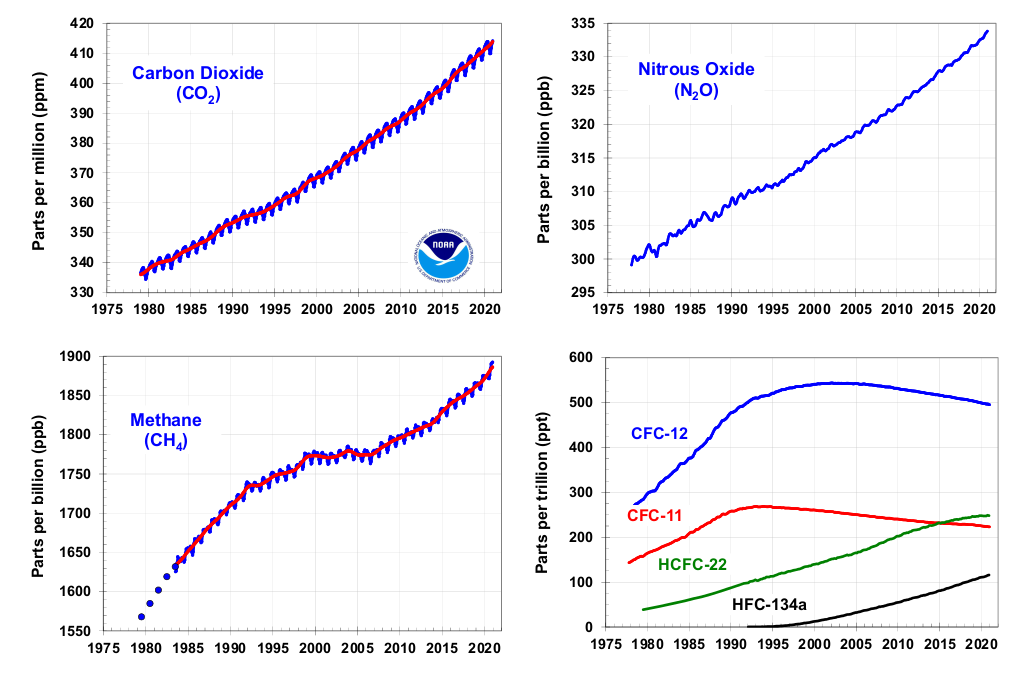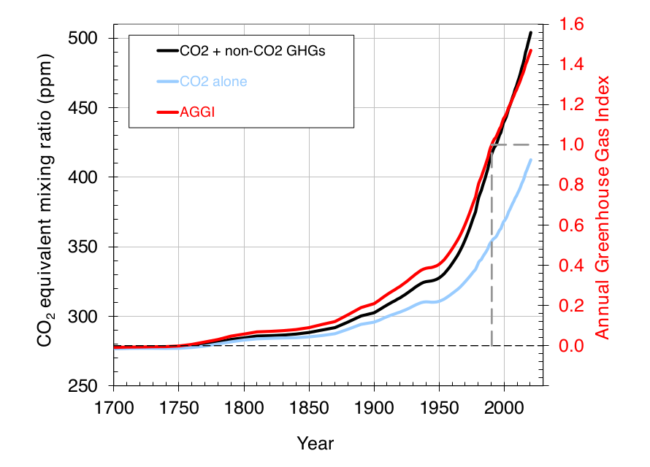
Each year NOAA publishes the updated AGGI (Annual #GreenhouseGas Index), and the latest version that now includes all the data for 2020 is available. They describe it as follows …
The AGGI is a measure of the climate-warming influence of long-lived trace gases in the atmosphere and how that influence has changed since the onset of the industrial revolution. The index was designed to enhance the connection between scientists and society by providing a normalized standard that can be easily understood and followed. The warming influence of long-lived greenhouse gases is well understood by scientists and has been reported by NOAA through a range of national and international assessments. Nevertheless, the language of scientists often eludes policy makers, educators, and the general public. This index is designed to help bridge that gap. The AGGI provides a way for this warming influence to be presented as a simple index.
The Charts
Here they are …

Highlights
From 2019 to 2020 the dial increased another 1.8% relative to 1990 levels, a rate that has been sustained for many years.
- The AGGI in 2020 was 1.47, which means that we’ve turned up the warming influence from greenhouse gases by 47% since 1990.
- It took ~240 years for the AGGI to go from 0 to 1, i.e., to reach 100%, and 30 years for it to increase by another 47%.
- In terms of CO2 equivalents, the atmosphere in 2020 contained 504 ppm, of which 412 is CO2 alone. The rest comes from other gases.
- CO2 is by far the largest contributor to the AGGI in terms of both amount and rate of increase.
- Note: The IPCC suggests that a constant concentration of CO2 alone at 550 ppm would lead to an average increase in Earth’s temperature of ~3°C (5.4°F).
- Despite a world-wide pandemic slowing down the global economy for several months in 2020, the warming influence on the planet continued to increase at a rate not significantly different than in recent years.

#GreenhouseGas Index – Where is the full detailed report?
The key point is that our emissions are still rising … rapidly … and that is really not good.
